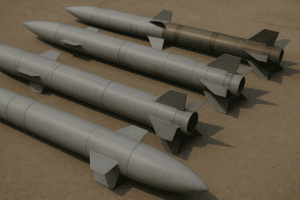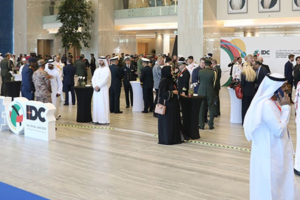The International Defence Conference (IDC) 2023, which is taking place at the ADNOC Business Center from 20-24 February, has got off to a good start and since welcomed a number of speakers from the government and private sector to address key issues in the defence and security space.
This year’s edition is expected to see more than 1800 participants, marking a growth of over 25% compared with the previous edition. It will also host four panel discussions covering the social and economic impacts and the risks of widespread adoption of new technologies and the impact of emerging technologies on modern operations and the future of warfare.
The first panel, “Promise and Peril – the social and economic impacts and risks of widespread adoption of new technologies such as AI, neuro, & biotechnology and extended reality” explored the social and economic impact and risks associated with widespread adoption of new technologies such as AI, neuro and biotechnology.
The panel explored the capabilities that these new technologies would bring, alongside new challenges.
“The limitations are the challenges you have with false positives. Ethical decision-making with a high level of competence is unfortunately not to the degree of a very well trained human being, but with time we’re going to see that as we feed the systems with more and more data, they’re going to be able to give us a better output compared to what we have today,” explained H.E. Omar Sultan Al Olama, Minister of State for AI, Digital Economy and Remote Work Applications, UAE.
According to John W. Nicholson Jr, Chief Executive, Lockheed Martin Middle East, “AI is not about replacing human decision making but rather enhancing human decision making. Al is very good at detecting anomalies and this allows the human to come in and verify what needs to be done.”
The second panel, “Keeping Pace –how the increasing incorporation of advanced technologies in the workplace is changing approaches to talent development and human capital management” examined the aspects of creation and development of human resources, and grasping opportunities created by technological processes as well as responding to challenges that these advancements bring.
The speakers including James Anthony Morse (President of Rabdan Academy), H.E. Robert Kachatryan (Minister of High Tech Industry in Armenia), Antoine Noguler (Head of Strategy at Airbus) and Mr. Hasan Alhosani, CEO of Bayanat.ae.
“As technology continues to evolve, skills of analysis, creativity, critical thinking of leadership are really going to be very important and enduring themes that we need to make sure are covered by education,2″ said James Morse. “The future operating environment is definitely going to have a far greater involvement from the private sector, and technology offers great opportunities in education and training.”
The third panel looked at “Tech at the Forefront”, in particular the impact of emerging technologies on modern operations and the future of warfare.
“There’s a couple of technologies that we’re seeing in Australia which are very important for the future of warfare. The first is robotics and autonomous systems. We are seeing an evolution on the battlefield right now, with ISR systems and increased accuracy,” said Professor Major General (Ret) Adam Findlay, Professor of Practice, Defence and Regional Security, Griffith Asia Institute, Griffith University, going on to add that there have instances where technology has been applied but we as people have had to adapt, something that needs to be changed.
The final panel, “The next Frontiers – the human instinct to explore beyond the current dimensions of the terrestrial and physical world and expand the human footprint in both space and digital domain” was investigated by Nikos Papatsas, Senior Partner of EFA Group, Anna-Karin Rosén, CEO of SAAB and Palmer Luckey, Founder and Inventor of Oculus VR, Anduril Industries.
“The number one thing that most governments can do is to create opportunities for companies with new technologies and new ways of doing things to successfully compete against the companies that have existed for a very, very long time,” Palmer said.
Media Contact
Editor, Defence Buyer
Tel: +44 (0) 1622 823 922
Email: editor@defencebuyer.com





